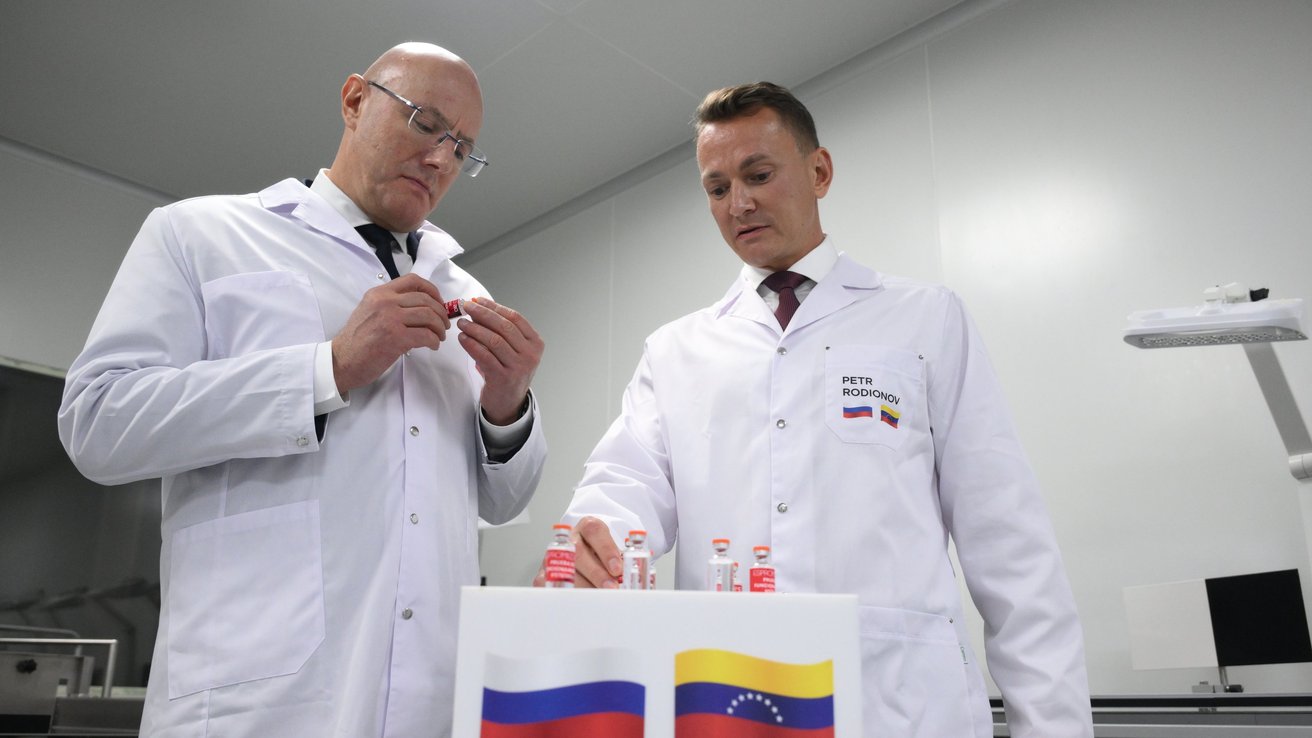Production of Insulins under the GEROPHARM Technology Will Be Launched in Venezuela in 2025
On 7 November 2024, Dmitriy Chernyshenko, Deputy Prime Minister of the Russian Federation, appraised the readiness of the ESPROMED BIO manufacturing site to produce the first insulin batches and greenlighted the final stage of preparation for the commercial production that will be launched in 2025. The products will be available to patients in 2026. This is an outcome of 5 years of cooperation with GEROPHARM.
The event was attended by Mr Sergey Melik-Bagdasarov, the Plenipotentiary Ambassador of the Russian Federation to Venezuela, Ms Gabriela Jimenez, the Vice President for Science, Technology, Education and Health, and Ms Magaly Gutiérrez Viña, the Minister of People’s Power for Health.
The recently modernised manufacturing site will undergo comprehensive testing to start the production of insulin products, which are expected to be authorised and available to Venezuelan patients in 2026.
In 2019, GEROPHARM started shipping to Venezuela insulins produced at its full-cycle manufacturing sites. At that time, Venezuela found itself in a predicament with medicines due to sanctions and Venezuelan diabetes patients were in a tough situation: insulins were not produced domestically while international manufacturers almost completely cut their exports to Venezuela. To start with, GEROPHARM launched steady shipments of recombinant human insulins in vials and insulin biosimilars in cartridges, which covered Venezuela’s insulin needs. Over the last five years, the Russian company shipped more than 8.5 mln insulin packs, pen injectors, and delivery devices worth more than Euro 63 mln, having provided many Venezuelan patients with life-saving medicines.
Later, GEROPHARM and ESPROMED BIO, a Venezuelan government-owned company, entered an agreement to transfer the recombinant human insulin technology to a Venezuelan manufacturing site. From November 2023 through October 2024, GEROPHARM purchased and shipped to Caracas laboratory and process equipment and trained leading ESPROMED BIO specialists in Russia in insulin development, production, and quality control.
Total investments into the Venezuelan company’s technological modernisation will amount to Euro 5.5 mln and another Euro 16 mln plus will be invested in the company’s operations. Once the company has reached its estimated output, it will produce more than 3 mln insulin vials, contingent on the insulin needs in Venezuela, and more than 100 new jobs will be created. Nevertheless, GEROPHARM will continue shipping to Venezuela the active substance produced at the site in Saint Petersburg and insulin analogues in cartridges.
In 2023, GEROPHARM’s representative office was registered in the Venezuelan capital Caracas and another agreement was signed to improve the Venezuelan pharmaceutical support system for diabetes patients. Under the cooperation agreement, training modules for medical practitioners will be developed to establish a chain of diabetes education centres and a pilot office will be opened having a complete patient instruction kit. In November 2024, GEROPHARM, the Venezuelan Ministry of Health, and Hugo Chávez Medical University will arrange training in diabetes treatment for Venezuelan healthcare professionals. A large-scale awareness campaign titled “You have the right to insulin!” is planned to be run until the current year’s end to inform Venezuelan patients how to get access to insulin through the government healthcare system. GEROPHARM also focuses on research cooperation between medical centres in both countries and will continue consulting ESPROMED BIO specialists in Russia.
Petr Rodionov, GEROPHARM Chief Executive Officer, says: “In addition to the recombinant insulins production technology, GEROPHARM, being a leader in diabetes treatment in Russia, shares its expertise: trains healthcare professionals, helps establish diabetes education centres, and fosters research cooperation between our two countries’ medical centres. I am confident that this joint project not only will improve the quality of life of thousands of people with diabetes but will also contribute to the further development of the pharmaceutical industry in Venezuela.”

